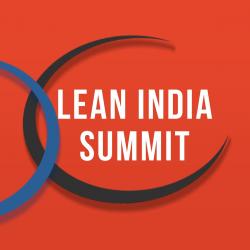In this blog we look at the ever changing dynamics of organizations today, especially product organizations in India. Implementing lean and agile practices have become common practice across the enterprise, let us look at some examples and see how some organizations are changing.
• In a three year product company somewhere in Bangalore, there were 25 people out of whom 18 were managers.
• In Hyderabad there is a product company of 1000 people where there are 15 levels of management that was found.
• Culturally too Indians often prefer positions of power. The higher you are and the more people that report to you, the more important you are deemed socially and organizationally.
Such organizations over time start collecting waste. The seven wastes as per lean
- Defects
- Overproduction
- Transportation
- Waiting
- Inventory
- Motion
- Processing
In organizations like the ones above excessive process and meetings cause delays resulting in a lot of waiting. There is no clarity often to people on how what they are doing is fitting the big picture. Hence there is too much inventory of features, too much process overkill. Most product companies end up releasing a typical product over a one year life span.
On the other hand start-ups suffer the reverse syndrome. They often have one person initially who has a dream and one person whose job is to convert the dream to money. In between there are many smart people and they figure out a version one of the product. Very soon most start-ups crumble due to not having any formal structure . This has resulted in newer practices like Lean Startup popularised by Eric Ries.
Organizations in the new era are in the business of delighting customers, are consciously making an effort to move towards shunning the centralized tall hierarchical structures and instead work towards building a structure that’s flatter and decentralized and one that promotes self-organized groups, with interchangeable members, focused on smaller projects. With an objective to get closer to the market and act faster, this change is not just happening to the start-ups but it is being welcomed by some of top companies of the world!
This does not mean complete loss of control. Take the case of Skype a well- known provider of telecom services. As they started growing bigger they got into issues of confusion and waste.
In all these cases lean practices and principles come to make a huge difference to the effectiveness and overall customer satisfaction of and customers and employees. One common mistake organizations do is they do not know when to not add more features to the product. Due to this delays happen and nothing ships.
A Global consulting firm known worldwide for its business consultancy went agile and implemented many of the lean principles. In this organization in New York and New Delhi now there are really large open rooms and no more manager cabins. The director sits opposite to the help desk person often.
An American Bank, one of world’s largest and also having a technology organization, is no different and when we walked into their facility in Chennai you do see an impressive site, where all the senior and junior members are seated together. The team navigated though the organisation challenges and politics to create an award winning cash management/liquidity solution based on agile development and testing practices.
SolutionsIQ India Consulting Services , a leading Agile consulting and development company has an flat structure and everyone sits in a large open room. The company is as flat as it can get and no one tells the members of the organization what to do! There is no micro- management. Instead each member knows the value that he/she will bring as a part of the organization and works at his/her own space and independence and on projects and activities that they like and add value to.
All are encouraged to use titles they like as titles are not what is important here, it is what you know and how you help others to become like you.
These are not tactics or techniques to save costs or make money; it is a way of thinking, it is a way of living and growing as an organization. It is not about building an organization only but also scaling to the next level with lean.
Lean as a practice was popularized by Toyota and has been followed by manufacturing industry for years. Agile practices on the other hand have been popularized by the industry. SolutionsIQ along with many other volunteers across India are hosting a 200 people conference where lean andAgile practitioners from manufacturing, automobile, services and start-ups community are coming together to discuss, debate and learn together the art of building awesome products that create lasting impressions on your customers just like Skype, IPhone or Facebook
Don’t miss your chance to learn, speak and listen to the global experts in Lean and Agile Thinking.
Be there at the Lean India Summit 2013 in Bangalore, on the 15th and 16th of November at Vivanta by Taj, MG Road, Bangalore.
Guest Post by Vibhu Srinivasan


